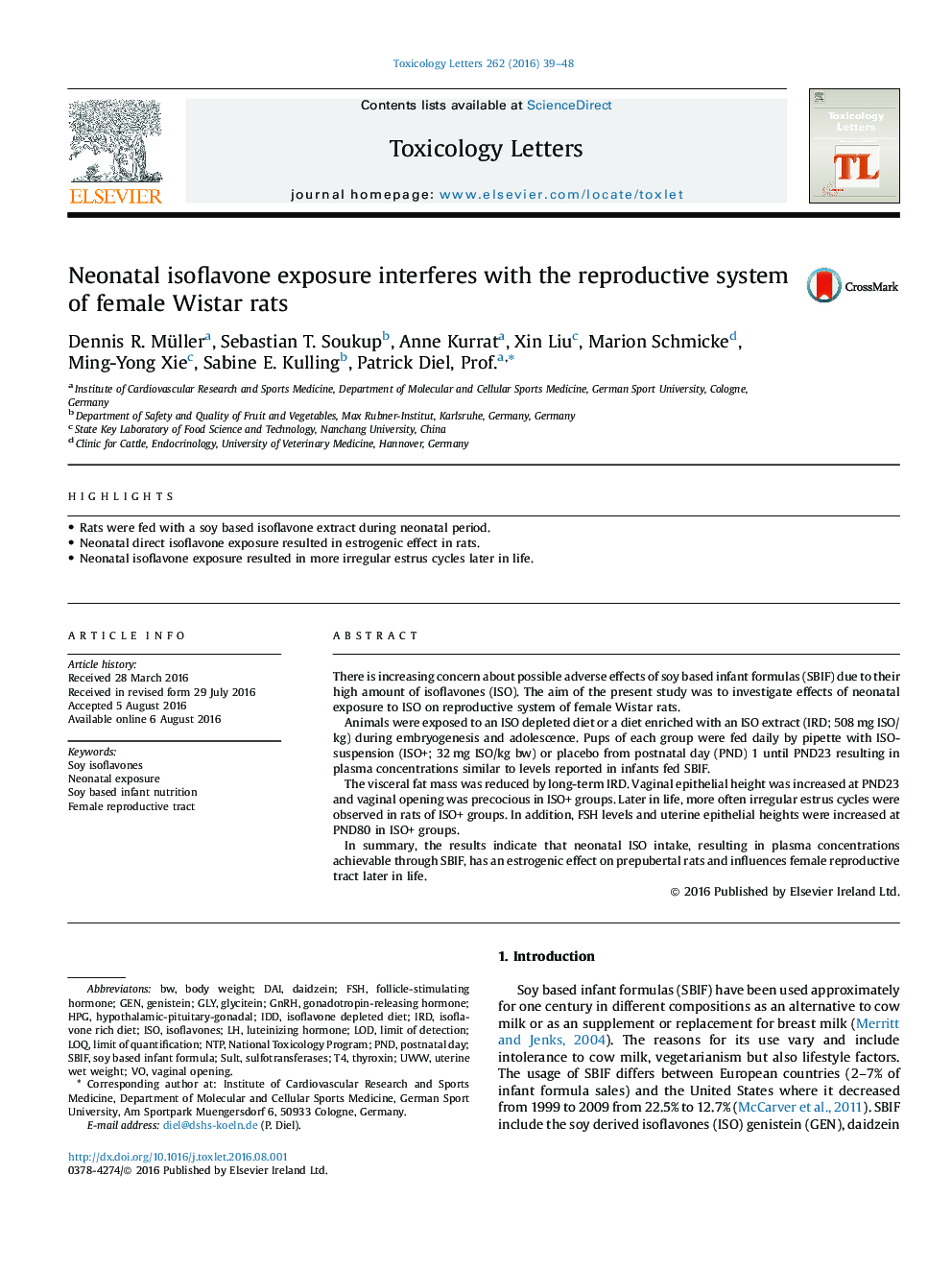| Article ID | Journal | Published Year | Pages | File Type |
|---|---|---|---|---|
| 5562304 | Toxicology Letters | 2016 | 10 Pages |
â¢Rats were fed with a soy based isoflavone extract during neonatal period.â¢Neonatal direct isoflavone exposure resulted in estrogenic effect in rats.â¢Neonatal isoflavone exposure resulted in more irregular estrus cycles later in life.
There is increasing concern about possible adverse effects of soy based infant formulas (SBIF) due to their high amount of isoflavones (ISO). The aim of the present study was to investigate effects of neonatal exposure to ISO on reproductive system of female Wistar rats.Animals were exposed to an ISO depleted diet or a diet enriched with an ISO extract (IRD; 508Â mg ISO/kg) during embryogenesis and adolescence. Pups of each group were fed daily by pipette with ISO-suspension (ISO+; 32Â mg ISO/kg bw) or placebo from postnatal day (PND) 1 until PND23 resulting in plasma concentrations similar to levels reported in infants fed SBIF.The visceral fat mass was reduced by long-term IRD. Vaginal epithelial height was increased at PND23 and vaginal opening was precocious in ISO+ groups. Later in life, more often irregular estrus cycles were observed in rats of ISO+ groups. In addition, FSH levels and uterine epithelial heights were increased at PND80 in ISO+ groups.In summary, the results indicate that neonatal ISO intake, resulting in plasma concentrations achievable through SBIF, has an estrogenic effect on prepubertal rats and influences female reproductive tract later in life.
